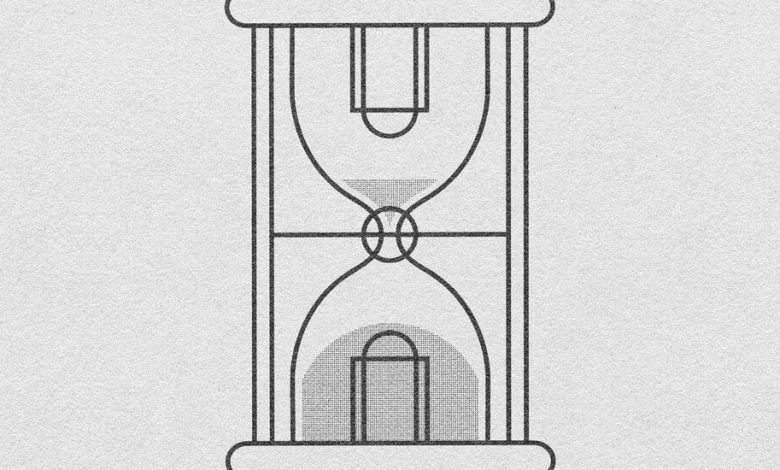Steph Curry Is Growing Older. I Am, Too.

A few weeks ago, as I watched the Golden State Warriors submit to a humiliating defeat by the Sacramento Kings, my main feeling was not frustration, anger or embarrassment. Rather, it was resignation: One day I will die.
The Warriors’ three core players — Stephen Curry, Klay Thompson and Draymond Green — have been together since 2012. I remember watching their first playoff run end at the hands of the dynastic San Antonio Spurs machine and reveling in their unbounded potential. They will be back, I thought, and I was right — over the next few years they turned into the defining team of their era, combining swarming, ferocious defense with gorgeous, egalitarian offense. Curry blossomed into one of the greatest players of all time; Green, one of the best defenders; Thompson, one of the best shooters. They went to the finals six times and won four.
How this all came to matter to me is a little mysterious. But one of the charms of sports is that they are empty of inherent meaning: A ball passing through a rim has no practical import or broader significance. But that emptiness makes them a perfect vessel for the entire range of human emotions, their bite no less sharp for the low stakes. For me, the emotional tides of life as a Warriors fan have moved in strange relation to the ebbs and flows of the rest of my life.
The professional life span of an N.B.A. player is short. Players join at 19 at the earliest, and by their early 30s, if they’ve managed to stick around that long, they are often considering retirement. Rooting for basketball players means constantly being aware that they are aging. And now that the oldest players are my age, it means constantly being aware that I am aging, too.
Stephen Curry was born into the N.B.A. in 2009, at age 21. Six years later he was the league’s most valuable player. Nine years after that, in 2024, it’s clear that the end is near, both for Curry and for this team. Parts of his game that I fell in love with have faded; watching him, I can almost feel my own bones grinding against one another. The quick-twitch burst that allowed him to slip past defenders or explode from a dribbler’s crouch to a shooter’s stretch is all but spent. He operates in narrower margins, tighter windows. Flashes of the old wizardry still shine through, but these days he is more craftsman than magician.
If there is one moment for which Klay Thompson will be remembered, it is Game 6 of 2016’s conference finals. On the verge of playoff elimination, Thompson saved the season with a supernatural series of three-point shots: from oblique angles, or with legs canted in the air, or over forests of defending arms. It was everything that I had come to love about basketball compressed into one game.
